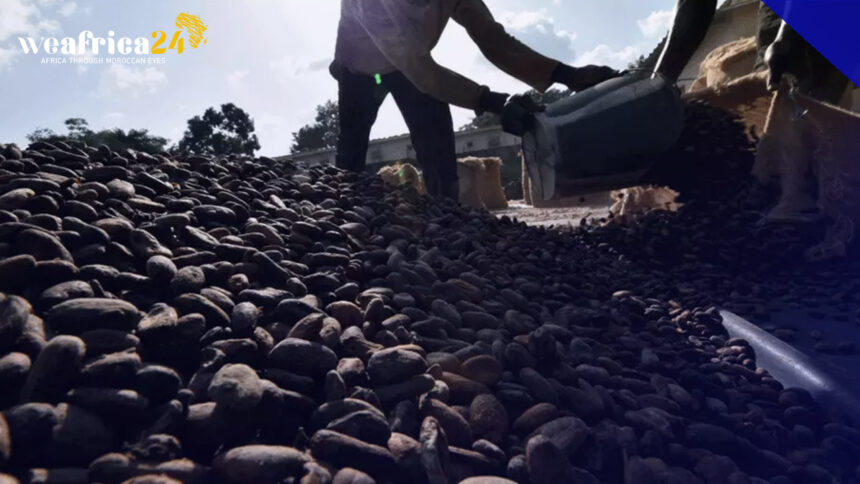With one year remaining until the concrete implementation of new regulations banning the import of cocoa from deforested areas, the head of the Ivorian Coffee and Cocoa Council visited Brussels this week to promote their traceability system.
Accompanied by ministerial delegates and private operators representing the industry, Yves Brahima Koné, the head of the Ivorian Coffee and Cocoa Council, held meetings with several European Commission officials in Brussels this week. At the heart of the discussions was the new European regulation that prohibits the import of cocoa from deforested areas after the end of 2020. In effect since June, it will come into full application for cocoa exports in the autumn of 2024.
The goal pursued by Ivory Coast, which had four days to make its case in Brussels, is to be classified as a low-risk country for deforestation by the European Commission, as specified by the Ivorian Coffee and Cocoa Council (CCC) in its statement released on Friday, September 15. This classification would enable Ivory Coast to continue exporting its cocoa to Europe.
Are Efforts Insufficient?
At this stage, 70% of Ivorian cocoa can be traced, with the entirety set to be traceable by the end of 2024, as assured by the Ivorian Coffee and Cocoa Council to European Commission diplomats. Efforts have been underway since 2018, with initiatives such as farmer registration and the installation of digital terminals in cooperatives. However, the system is complex to implement and costly, which was also discussed during the meetings.
The EU appears committed to supporting the industry in transitioning towards sustainable cocoa, a development welcomed by a stakeholder in the sector at the end of these four days of discussions. The key question now is whether cocoa importers in Europe will be reassured by Ivory Coast’s proposed timeline. Will they be confident enough to make advance purchases, possibly starting in November/December through futures contracts, for the first harvest affected by the regulations, which will be physically traded in 2024/2025?
Ivory Coast is actively working to meet the EU’s sustainability criteria and maintain its position as a significant cocoa exporter to European markets, demonstrating its commitment to combating deforestation in the cocoa supply chain. The upcoming months will reveal whether these efforts and assurances are enough to ensure continued cooperation and trade between the Ivory Coast and the European Union.







